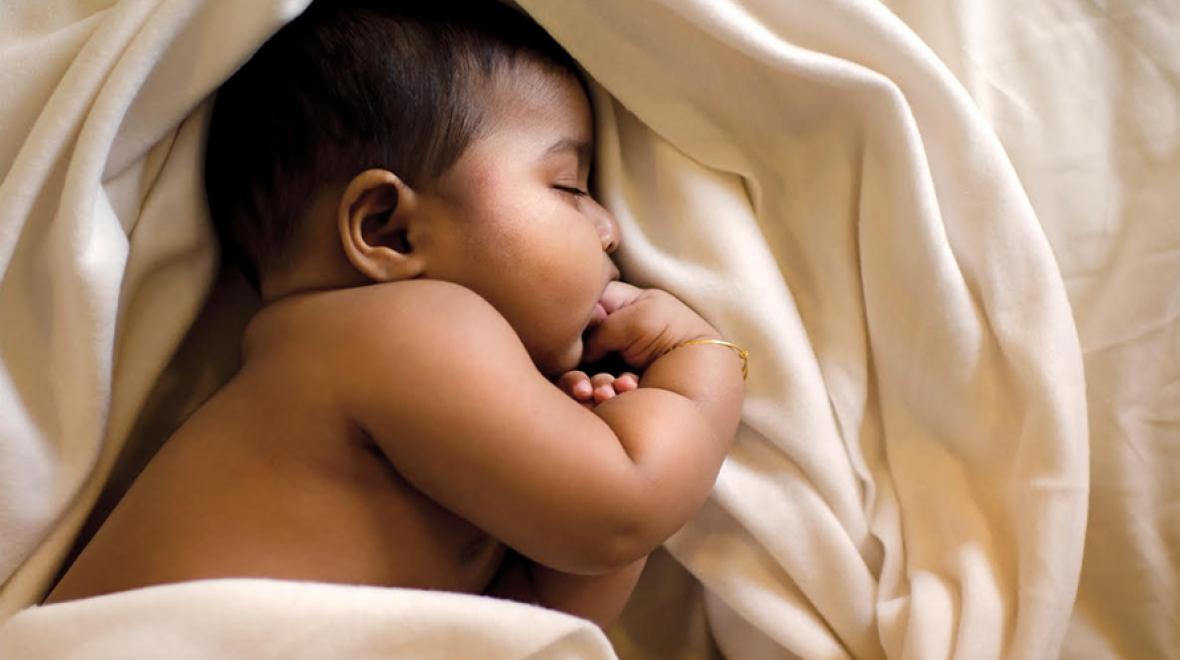
Editor's note: This article was sponsored by Seattle Children's Hospital.
First, the good news: Thanks to social distancing and travel restrictions, fewer children are experiencing ear infections, colds and other minor illnesses this year, says Maida Chen, M.D., director of the Pediatric Sleep Disorders Center at Seattle Children’s Hospital. Because these illnesses routinely disrupt slumber for babies, toddlers and young children, fewer parents are calling about illness-related sleep complaints.
However, that doesn’t mean everyone is sleeping soundly in 2020. In fact, more parents are reporting sleep regressions: Babies and toddlers are skipping or dropping naps, suddenly waking at night or taking ages to fall asleep at bedtime. With COVID-19 disrupting family life for the past few months, daily routines, including sleep schedules, may be shifting, says Chen. Here’s how to cope.
Redefining regression
The term “sleep regression” describes a temporary but troubling return of an undesirable sleep behavior that a parent or caregiver assumed the child had outgrown; for example, sudden night awakenings months after a child had begun sleeping through the night. While sleep regressions can happen at any time, they’re common around 4, 9, 12, 18 and 24 months of age and can coincide with developmental milestones. One 2015 study found that learning to crawl temporarily disrupts nighttime sleep for babies between 5 and 11 months of age. Another study found that transitions in napping patterns in toddlerhood can shift melatonin production and delay bedtime.
Sleep regressions can stretch anywhere from a few days to a few weeks or longer, often involving fussy behavior in overtired babies during the day and long stretches of light sleep or crying at night for irritable infants. It’s no wonder that parents want to rush through these regressions and get sleep back on track, stat.
Although sleep regressions are real, whether or not they’re a problem may be a matter of perception, says Chen. In about half of the cases, a sleep regression is developmentally appropriate; it’s normal for babies to wake more often after they’ve acquired a new skill, such as learning to roll over or stand.
“A sleep regression is really just a change in sleep that’s perceived as undesirable by a caregiver,” says Chen. “It’s simply a misalignment with our expectations of how a baby should be sleeping compared to what’s happening with their sleep.”
Why regressions are worse this year
It’s true that childhood sleep disruptions seem to be worse this year, despite fewer illness-related sleep complaints from parents, says Chen. But the changes may have more to do with parental stress than actual sleep problems. “The issue is more highlighted now because we’re spending more time at home and traveling less, and parents have zero time away from their kids,” she says. “When you rely on your toddler’s nap or bedtime so that you can work or have a break, you’re going to be more upset when those regressions happen.”
Yet it’s also true that there may be genuine triggers for disruptions in sleep patterns, such as fewer naps or later bedtimes. For example, spending more time at home might mean that a baby is sleeping later in the morning or taking a longer afternoon nap, two factors that can cause a later bedtime or nighttime awakenings. “Without school or day care for many children, there’s a major lack of structure and daytime cues,” says Chen. These cues help organize sleep patterns for babies, toddlers and children; without them, schedules drift and sleep routines slide.
Families are also battling the normal, seasonal early sunrises and late sunsets (at about 10 p.m. by midyear) that disrupt melatonin production and delay bedtimes. This year, summer’s extended daylight combined with a decrease in physical activity and hours of extra screen time can negatively affect sleep, says Chen.
How to help
First, take inventory of your child’s supposed sleep problems, recommends Chen. “Parents should really do a gut check about what their child is experiencing in terms of sleep, and how big of a problem it really is for the child and the family. Is your child really being affected adversely from a developmental standpoint, or is it really just the stress of upholding what life is supposed to look like?”
Determine your family’s sleep priorities. If you’re operating in survival mode and just need to nab enough shut-eye to get through the next day, don’t waste a moment worrying about bringing your toddler into bed with you if it will help everyone get more sleep, says Chen. Only bring your baby into your bed to feed or comfort them, and then place your baby back in his or her own sleep space when you are ready to go to sleep.
On the other hand, if keeping your child’s daily routine running smoothly helps keep stress at bay, don’t feel guilty about prioritizing a consistent sleep schedule. “If the family thrives on routine, and survival is not the main concern, then this can be a good time to teach the baby or toddler self-soothing skills.” That could mean allowing your baby some extra time to fall asleep unaided or encouraging your toddler to play alone if they wake too early or aren’t taking a nap.
During periods of sleep slipups, such as skipped naps, early-morning awakenings and later-than-you’d-like bedtimes, gently reinforcing the idea of a “read and rest” period with books and quiet toys can reduce stress for everyone.
Whether your family is staying at home most of the time or not, build in regular movement, especially in the morning, when light exposure helps regulate sleep patterns and paves the way for a smoother bedtime. Aim for 10 minutes of outdoor time within the first hour of waking up; try an a.m. walk around the block or a game of hopscotch in the driveway. Investing in inexpensive blackout blinds from a big-box store can also help keep sleep routines intact during the bright spring and summer months, says Chen.
Limit screen time, especially in the final hour or two before bed. “This can be a time to establish family routines that support rest, like taking time at night to unplug as a family and relax,” she notes. “Parents can model healthy habits like taking a break from phones and screens at night.”
It’s normal to feel stressed when things seem to be falling apart, including your child’s sleep routine, says Chen. But like everything else in babyhood, the change is temporary; children with healthy sleep patterns will nearly always get back on track after a developmental milestone, life change or seasonal disruption passes. If you’re worried about your child’s sleep issues, don’t hesitate to contact their health-care provider with any questions or concerns.
“Right now, what parents need most is to give themselves grace,” says Chen.
|
Sponsored by: |












